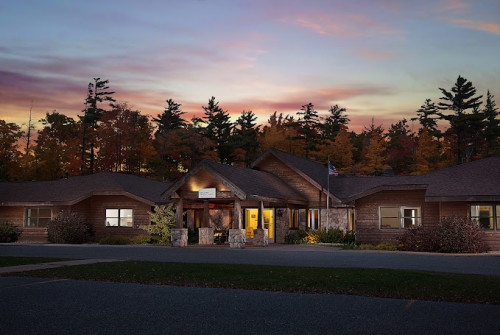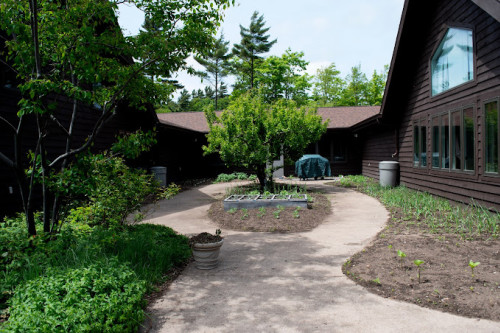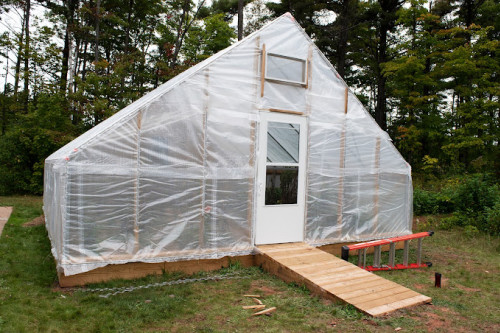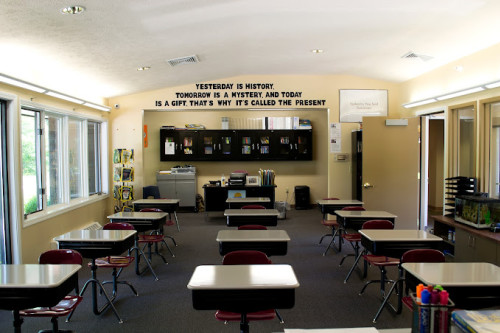






Great Lakes Recovery Adolescent Center
Treatment Focus
This center treats substance use disorders and co-occurring mental health conditions. Your treatment plan addresses each condition at once with personalized, compassionate care for comprehensive healing.
Primary Level of Care
Offering intensive care with 24/7 monitoring, residential treatment is typically 30 days and can cover multiple levels of care. Length can range from 14 to 90 days typically.
This provider hasn't verified their profile's information. Are you the owner of this center? Claim your listing to better manage your presence on Recovery.com.
Treatment Focus
This center treats substance use disorders and co-occurring mental health conditions. Your treatment plan addresses each condition at once with personalized, compassionate care for comprehensive healing.
Primary Level of Care
Offering intensive care with 24/7 monitoring, residential treatment is typically 30 days and can cover multiple levels of care. Length can range from 14 to 90 days typically.
Provider's Policy
GLRC's dedicated team of specialists can assist you in determining if your insurance carrier covers services.
Great Lakes Recovery Adolescent Center
Great Lakes Recovery Adolescent Center
About Great Lakes Recovery Adolescent Center
Located on 32 acres of land, Great Lakes Recovery Center for adolescents is a residential facility providing substance abuse treatment and relapse prevention services for individuals ages 12-17. Caring and empathetic staff are trained to support each individual holistically, working with clients to develop life-skills, engage in healthy relationships, address trauma, and maintain sobriety. Patients will attend school on-site and attend 2 group sessions daily, along with weekly individual and family therapy.
Classroom Education
Great Lakes Recovery provides a home-like atmosphere and year-round classroom education allowing patients to continue their schooling while in treatment. The comfortable environment offers semi-private bedrooms with an attached bath, a community living space including a TV area, social community meal times, an enclosed courtyard, outdoor basketball court, a greenhouse, walking trails, and a healing circle. A certified Special Education teacher is on-site to work with clients and meet each of their academic needs, including GED testing when needed. An in-house medical provider and nurse are also available to provide comprehensive medical care ensuring clients have their medical and dental needs met.
The on-site classroom offers natural lighting with views of nature, and is equipped with comfortable desk seating, laptops for educational use only and headphones when needed, a dry erase board, projector, monitor, and smart board for various learning presentations. A Great Lakes Recovery counselor is also assigned to the classroom, creating a low adult-to-student ratio. School records are transferred from the patient's school district upon admission, allowing the teacher to prepare similar lesson plans and curriculum. Weekly school reports document classroom performance, and academic recommendations are given to the district to help patients transition back into school. A school psychologist is also available for consultation and developing or managing individualized education plans. Books, materials, and transportation are all provided by Great Lakes Recovery Center.
Family Involvement
When patients enter treatment at Great Lakes Recovery Center, each is assigned a primary counselor to provide weekly individual therapy sessions. Clients participate in multiple therapeutic or didactic group therapy sessions daily with group discussion on various topics and group activities or workshops. Care givers are given a family questionnaire as part of the admissions process, allowing the primary therapist to use the family’s input and develop a treatment plan that includes family involvement. Primary therapists will maintain contact regarding the patients progress and facilitate family therapy sessions that can be done both in person and virtually. Adolescent residential services can also address patients with co-occurring disorders, providing medication education and management, along with specialized clinical treatment with motivational and engagement strategies along and evidence-based practices.
Holistic Treatment
Residents will also experience several forms of experiential and recreational therapies, such as music expression which includes instruments, song writing, singing, and lyrical analysis and explores personal feelings, promotes personal expression, and helps develop healthy coping skills. Art expression involves various art projects and activities that promote creativity and provide alternative coping strategies for trauma and overwhelming emotions.
Surrounded by 32 acres of campus, clients will also explore recreational interests like hiking, basketball, gym and fitness, and outdoor seasonal activities such as swimming, volleyball, kayaking, ultimate frisbee, tennis, skiing, ice skating, snowshoeing, and sledding. Seasonal equine therapy is also available at nearby Heritage Hills, where patients can learn to groom, feed, halter, and lead a horse as part of a therapeutic process.
Through Our Eyes is a photography program, teaching photography skills and allowing patients to hike the campus taking photographs that fall within the current month's theme. The Bridges program connects adolescent patients with local senior citizens from assisted living communities, focusing on fellowship with games, crafts, and activities and community involvement. Service learning provides the opportunity for feeling like an accomplished and valued member of the community, allowing clients to perform community service projects ranging from working with senior citizens, special needs, reading to children in local daycares, and planting community gardens.
On-staff Acupuncture Detoxification Specialists provide auricular therapy, using acupuncture to aid in the detoxification process and promote relaxation as an alternative form of healing. Other holistic therapies include meditation, essential oils, and guided visualization, offering foot baths and herbal teas as part of the treatment experience.

Center Overview
Treatment Focus
This center treats substance use disorders and co-occurring mental health conditions. Your treatment plan addresses each condition at once with personalized, compassionate care for comprehensive healing.
CARF Accredited
CARF stands for the Commission on Accreditation of Rehabilitation Facilities. It's an independent, non-profit organization that provides accreditation services for a variety of healthcare services. To be accredited means that the program meets their standards for quality, effectiveness, and person-centered care.
Insurance Accepted
Cash Pay Rates
Estimated Cash Pay Rate
Center pricing can vary based on program and length of stay. Contact the center for more information. Recovery.com strives for price transparency so you can make an informed decision.
Levels of Care






Your Care Options
Specializations
Adolescents
Teens receive the treatment they need for mental health disorders and addiction, with the added support of educational and vocational services.
Co-Occurring Disorders
A person with multiple mental health diagnoses, such as addiction and depression, has co-occurring disorders also called dual diagnosis.
Equine Therapy
Guided interactions with trained horses, their handler, and a therapist can help patients improve their self-esteem, trust, empathy, and social skills.
Who We Treat
Adolescents
Teens receive the treatment they need for mental health disorders and addiction, with the added support of educational and vocational services.
Approaches
Evidence-Based
A combination of scientifically rooted therapies and treatments make up evidence-based care, defined by their measured and proven results.
Experiential
Expressive tools and therapies help patients process past situations, learn more about themselves, and find healing through action.
Family Involvement
Providers involve family in the treatment of their loved one through family therapy, visits, or both–because addiction is a family disease.
Holistic
A non-medicinal, wellness-focused approach that aims to align the mind, body, and spirit for deep and lasting healing.
Personalized Treatment
The specific needs, histories, and conditions of individual patients receive personalized, highly relevant care throughout their recovery journey.
Twelve Step
Incorporating spirituality, community, and responsibility, 12-Step philosophies prioritize the guidance of a Higher Power and a continuation of 12-Step practices.
Therapies
1-on-1 Counseling
Patient and therapist meet 1-on-1 to work through difficult emotions and behavioral challenges in a personal, private setting.
Meditation & Mindfulness
A practiced state of mind that brings patients to the present. It allows them to become fully aware of themselves, their feelings, and the present moment.
Art Therapy
Visual art invites patients to examine the emotions within their work, focusing on the process of creativity and its gentle therapeutic power.
Equine Therapy
Guided interactions with trained horses, their handler, and a therapist can help patients improve their self-esteem, trust, empathy, and social skills.
Experiential Therapy
With this approach, patients heal by doing. Therapists help patients process difficult emotions to speak, using guided activities like art or dance.
Expressive Arts
Creative processes like art, writing, or dance use inner creative desires to help boost confidence, emotional growth, and initiate change.
Substances We Treat
Alcohol
Using alcohol as a coping mechanism, or drinking excessively throughout the week, signals an alcohol use disorder.
Co-Occurring Disorders
A person with multiple mental health diagnoses, such as addiction and depression, has co-occurring disorders also called dual diagnosis.
Drug Addiction
Drug addiction is the excessive and repetitive use of substances, despite harmful consequences to a person's life, health, and relationships.





